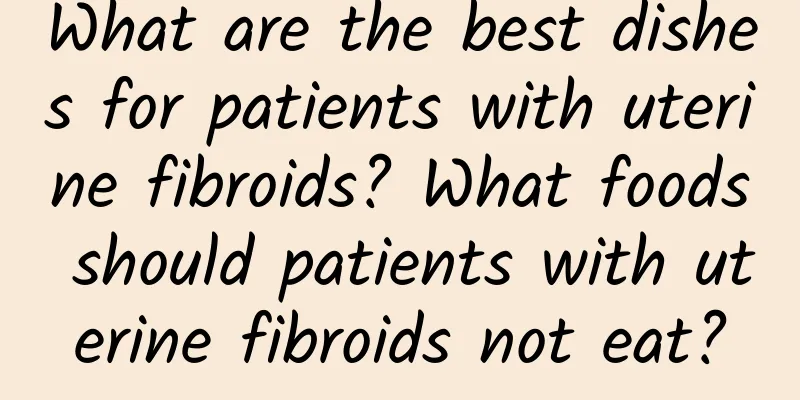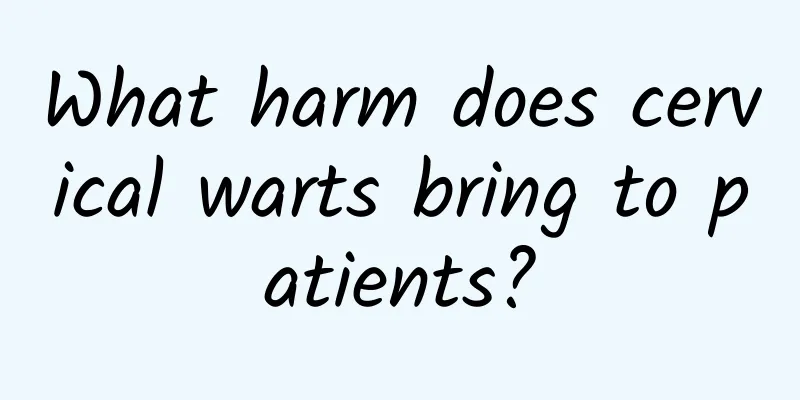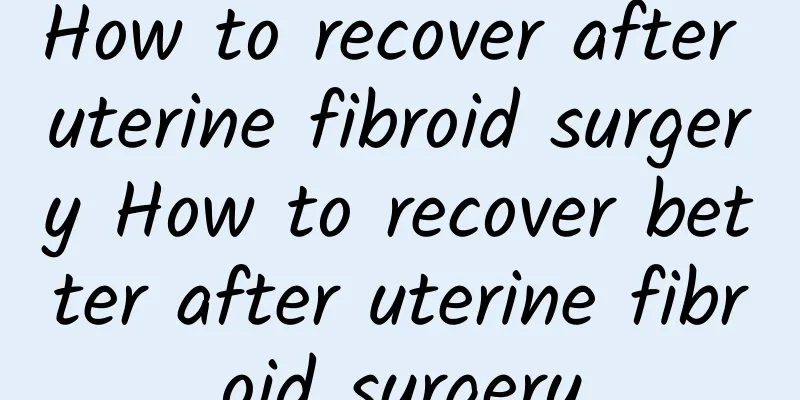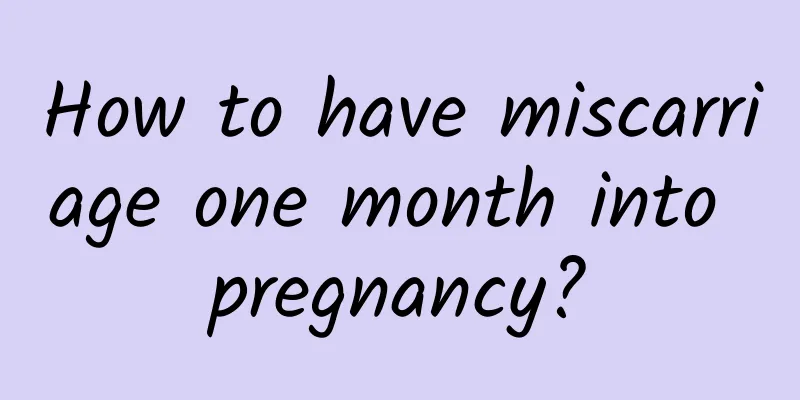What are the best dishes for patients with uterine fibroids? What foods should patients with uterine fibroids not eat?

|
What are the best dishes for patients with uterine fibroids? What foods should patients with uterine fibroids not eat? Uterine fibroids are common benign tumors in women. For patients with uterine fibroids, a reasonable diet is particularly important. Good eating habits can help alleviate symptoms and promote recovery. This article will discuss the dietary issues of patients with uterine fibroids, introduce some vegetables suitable for patients with uterine fibroids, and suggest some foods that should not be eaten. 1. Vegetables rich in fiber Cellulose is one of the essential nutrients in the diet of patients with uterine fibroids. It can increase intestinal peristalsis, promote defecation, and help prevent constipation and other problems. For patients with uterine fibroids, it is very important to choose vegetables rich in cellulose. For example, cauliflower, celery, carrots and other vegetables are rich in cellulose, which can help patients improve constipation problems and maintain intestinal health. 2. Vegetables rich in vitamin C Vitamin C is a beneficial antioxidant that can help improve immunity and fight disease, and it can also help improve the symptoms of patients with uterine fibroids. Vegetables rich in vitamin C include citrus fruits such as oranges, lemons, and grapefruits, as well as green leafy vegetables such as spinach and Chinese cabbage. These vegetables are not only rich in vitamin C, but also rich in other nutrients that can help improve the overall health of patients with uterine fibroids. 3. Iron-Rich Vegetables Patients with uterine fibroids often have anemia problems, so adequate iron intake is very important to improve anemia. Studies have shown that iron-rich vegetables can effectively improve anemia in patients with uterine fibroids. For example, celery, spinach, leeks, etc. are all iron-rich vegetables. Patients can eat them in moderation to effectively improve anemia problems. 4. Foods that should not be eaten In addition to knowing which vegetables to eat, patients with uterine fibroids also need to know some foods that should not be eaten. Spicy foods, such as peppers and peppercorns, should be avoided because they may aggravate the symptoms of patients with uterine fibroids. High-fat foods, such as fried foods and fatty meats, should be avoided because they increase the level of estrogen in the body and may stimulate the growth of uterine fibroids. High-salt foods and stimulating beverages, such as coffee and carbonated drinks, should also be avoided. In terms of diet, patients with uterine fibroids should focus on choosing vegetables rich in fiber, vitamin C and iron, such as cauliflower, celery, carrots, citrus fruits, spinach, etc., which can help improve the patient's symptoms and improve overall health. At the same time, spicy and irritating foods, high-fat foods, high-salt foods and irritating drinks should be avoided to avoid aggravating the symptoms of patients with uterine fibroids. Most importantly, patients with uterine fibroids should reasonably match their diet according to their own condition and personal constitution, preferably under the guidance of a doctor. Only reasonable eating habits and a scientific lifestyle can help patients with uterine fibroids better control the disease and improve their quality of life. |
>>: What are the causes of uterine fibroid growth?
Recommend
Simple and effective treatment for pelvic peritonitis
The principle of treatment is to actively elimina...
Pay more attention to atrophic vulvar leukoplakia
What is atrophic vulvar leukoplakia? Women must w...
Most patients with ectopic pregnancy are diagnosed through abdominal pain.
Most patients with ectopic pregnancy discover the...
What are the symptoms of vaginitis in pregnant women?
I believe you must have a certain understanding o...
What is the difference between implantation bleeding and menstruation?
Of course, there are still big differences betwee...
How should female friends better prevent adnexitis?
Adnexitis refers to inflammation of the fallopian...
Potential effects of warning labels on sugary drinks
In some areas, sugary drinks are required to be l...
How much harm does abortion do to women?
Abortion causes many kinds of harm to women, incl...
Bacterial vaginosis that is prone to recurrence
We all know that we cannot live without bacteria ...
Experts explain how to check for ovarian cysts
In real life, female friends of any age may suffe...
Can Yuting treat ectopic pregnancy? No
Yuting is a post-contraceptive pill that has a go...
What causes uterine fibroids and how to treat them
Uterine fibroids are a common gynecological disea...
Is ovarian cyst surgery expensive?
Is ovarian cyst surgery expensive? Ovarian tumors...
What are the characteristics of adenomyosis anemia?
What should I do if I have adenomyosis anemia? Wh...
How to avoid pain during curettage? Why does curettage hurt?
Does it hurt to have a curettage? How to avoid it...









